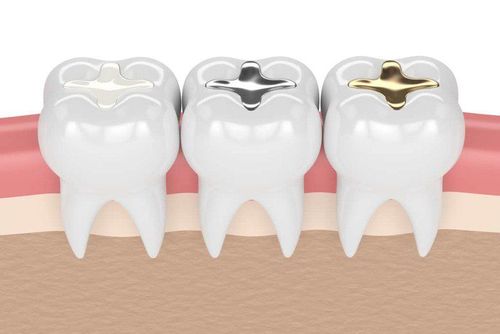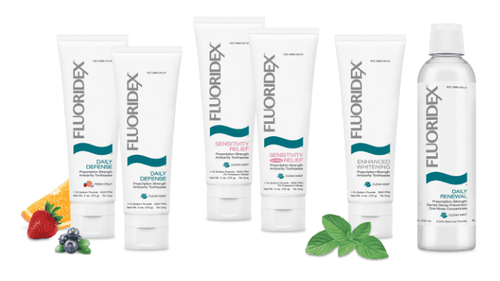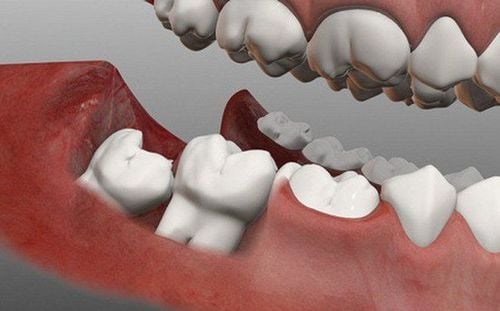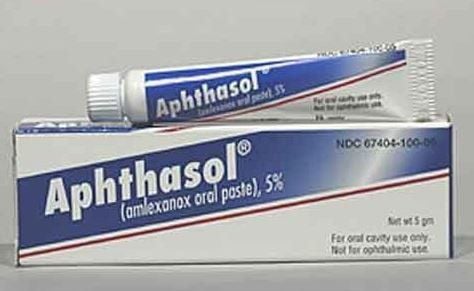This is an automatically translated article.
The article was professionally consulted by Specialist Doctor II Nguyen Khanh Nam - Doctor of Odonto-Stomatology - Department of General Surgery - Vinmec Nha Trang International General Hospital.Sensitive teeth is a feeling of sensitivity when eating some sweet, sour, hot, cold, ... or changing weather. There are many causes of sensitive teeth and cause a lot of trouble.
1. What is sensitive teeth?
Sensitive teeth or sensitive teeth is the common name for the phenomenon of dentin hypersensitivity or the symptoms of sensitivity at the root of the tooth. This is a disease in which the teeth will become more sensitive to stimuli from hot or cold temperatures and external forces, most often appearing in young and middle-aged people.Teeth are made up of 3 parts: enamel, dentin and pulp. Under normal conditions, dentin is covered with enamel, but for many reasons, this enamel coating is worn down, the ability to protect dentin is reduced. At this time, the neural tube must be in direct contact with hot and cold drinks and foods, causing nerve irritation, creating sensitivity, also known as dentin hypersensitivity.
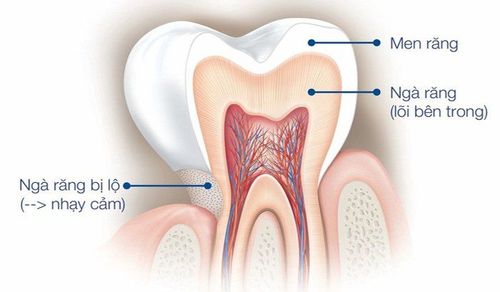
2. Signs of sensitive teeth
Dentin sensitivity, or tooth sensitivity, is a common dental problem. This condition can progress over time, and it is the result of common problems such as receding gums and enamel wear. Most of the patients are between the ages of 20 and 50 years. Sensitive teeth begin to form when the softer 'dentin' on the inside of the tooth wears away. The dentin is located under the enamel and gums. Thousands of microchannels run through the dentin toward the central part of the tooth. Once the dentin has eroded, external agents (such as cold drinks) can irritate the nerves inside the tooth and result in a brief, sharp pain in the sensitive tooth.3. Causes of sensitive teeth
Some common causes of sensitive teeth include:
Acidic foods: Regularly eating foods with high acid content such as citrus, toadstool, mango, tomato, pickles or tea. ..may cause enamel erosion. Should limit eating these foods, or can eat more cheese or drink a glass of milk immediately after eating sour food to reduce the harmful effects of acid. Hard bristles: If you brush your teeth vigorously or use a brush that is too hard, the gums can be damaged and expose the dentin layer. Since then, teeth are sensitive when eating, brushing or flossing. Receding gums: The root of the tooth is covered by gum tissue. However, if you have periodontal disease, the gums can recede and expose the sensitive dentin layer. Therefore, when experiencing receding gums, it is necessary to see a dentist for advice and timely intervention. Broken or cracked teeth: Chewing on ice, biting on hard candy, or being hit by an accident can lead to chipping or cracking. When a tooth is cracked, the nerve endings inside are irritated when chewing. In addition, the fissure is also a place for bacteria to cause infection, causing toothache. Cavities: Cavities create cavities in the teeth, when cavities in the pulp expose the nerve endings in the tooth pulp. This makes the teeth sensitive. The best way in this case is to maintain good oral hygiene, eat right and should visit your dentist for regular checkups. Teeth grinding: Although enamel is the hardest tissue in the body, it can also wear down over time because of habits that many people think are harmless such as grinding teeth. So, limit these actions to avoid tooth sensitivity.

4. Prevention of sensitive teeth
To prevent sensitive teeth, regular oral hygiene is an extremely important thing for oral health care. Some things you should do to protect your teeth include:
Brush your teeth at least twice a day in the morning when you wake up and at night before going to bed with a toothpaste specifically for sensitive teeth. Use a soft-bristled toothbrush and gently brush in a circular motion, not horizontally. Need to change toothbrush regularly about every 2-3 months, or can change sooner if the brush is lint Limit the use of foods that are harmful to teeth such as sugary foods, carbonated drinks and foods. acid Helps strengthen tooth structure, prevents sensitive teeth. Fluorine also enhances mineral remineralization, which prevents tooth decay before cavities are discovered. In addition, some special ingredients in toothpaste help whiten and clean teeth, bringing a confident smile to each person. In short, sensitive teeth are when eating certain foods or changing weather causes sensitive and painful teeth. There are many causes of sensitive teeth such as: receding gums, eating a lot of sour and cold foods, tooth decay, broken teeth,... Sensitive teeth make patients feel uncomfortable and painful, so when If you find that there are abnormal problems in teeth and gums, it is necessary to immediately go to the dental clinic for timely examination and intervention.
Currently, the Department of Dentistry - Jaw - Facial of Vinmec International General Hospital is a specialty in charge of intensive and aesthetic pathological treatment on the entire tooth structure (teeth, bone, pulp,... ), jaw (palatine, jawline, jaw joint,...) and face (frontal bone, cheekbone, temporal bone,...).
Dental - Jaw - Facial Department is divided into main specialties, in order to serve the needs of patients such as: Restorative dentistry, maxillofacial trauma, general dentistry, cosmetic dentistry and Interior.
Please dial HOTLINE for more information or register for an appointment HERE. Download MyVinmec app to make appointments faster and to manage your bookings easily.





